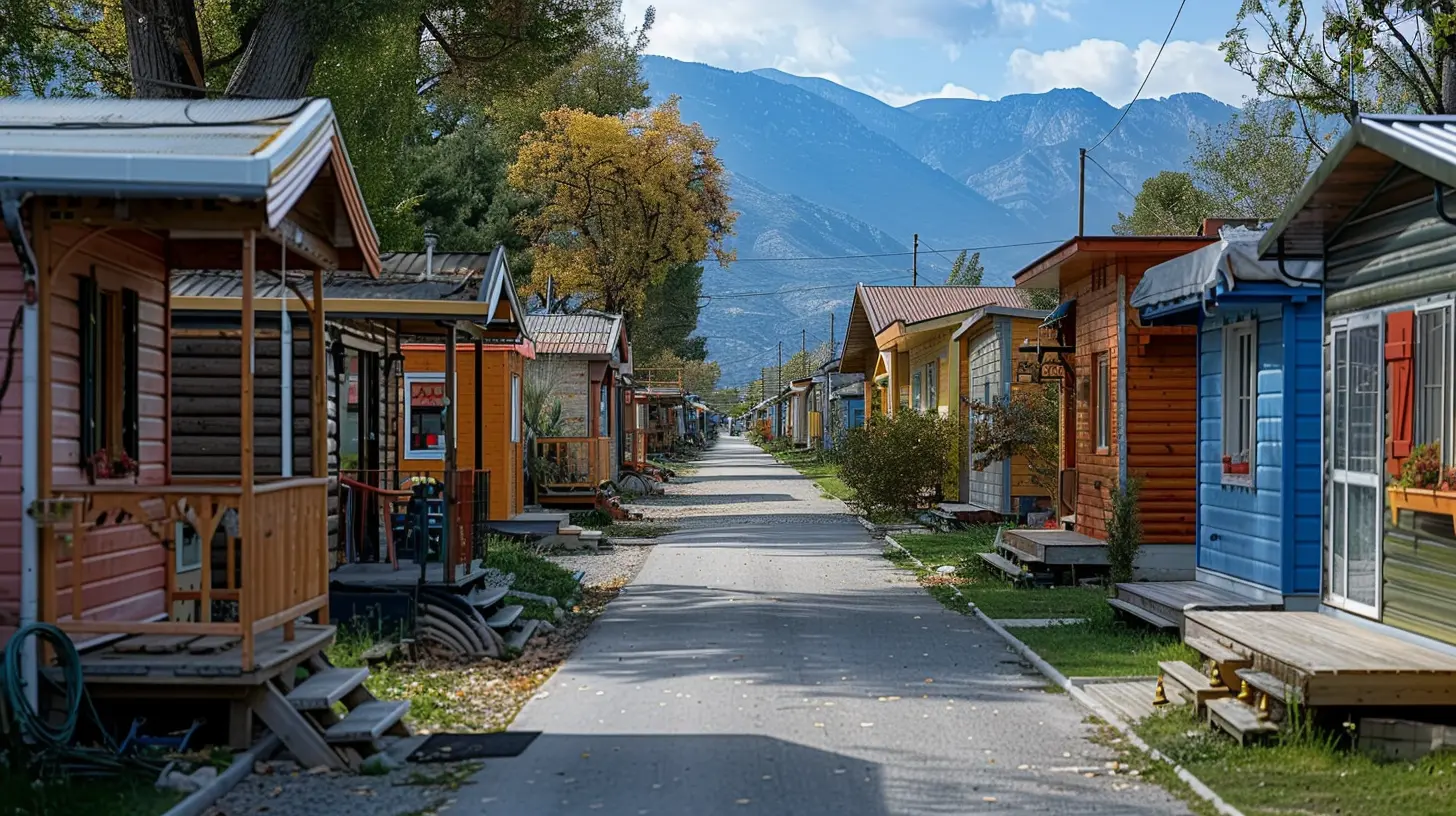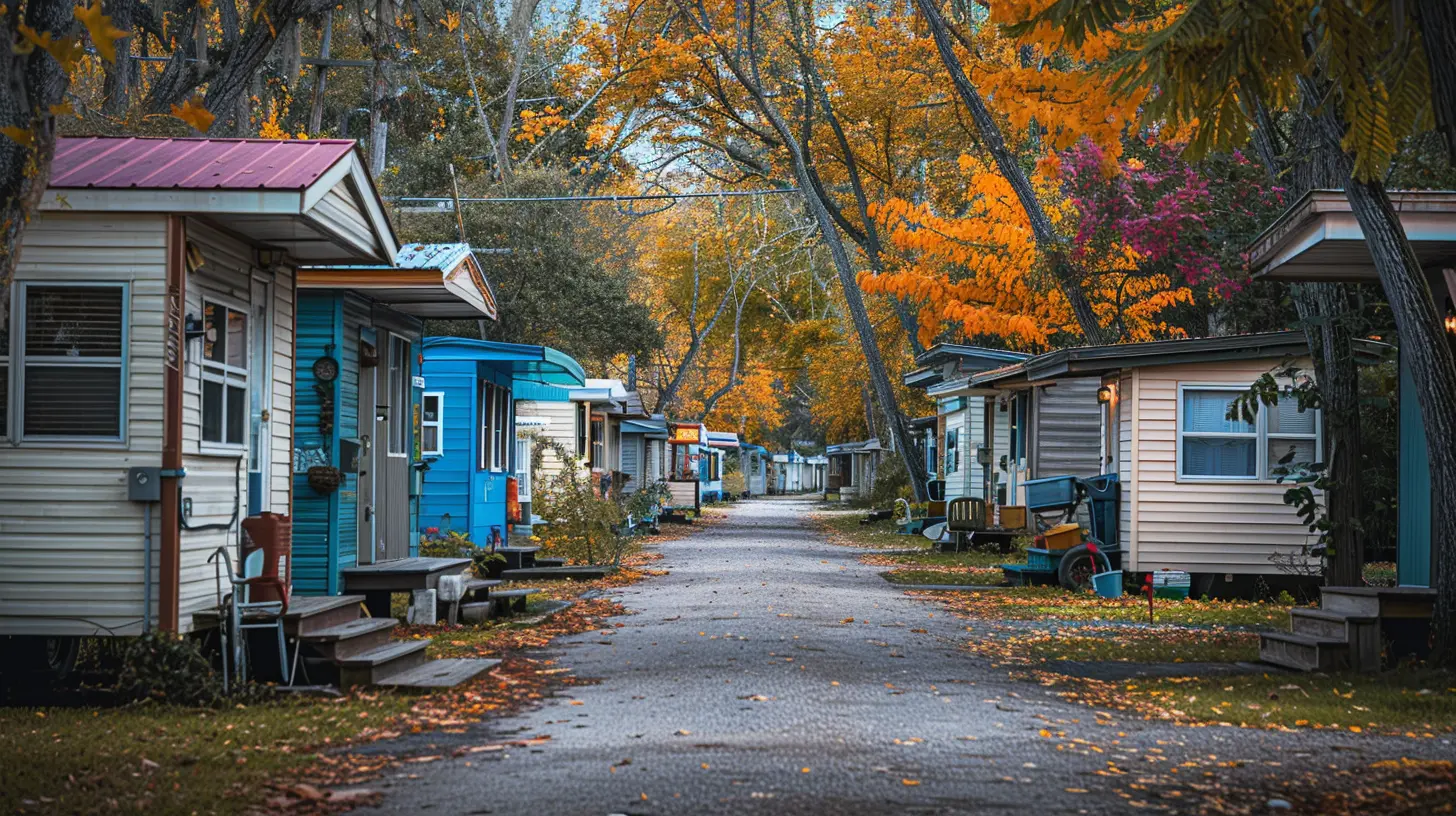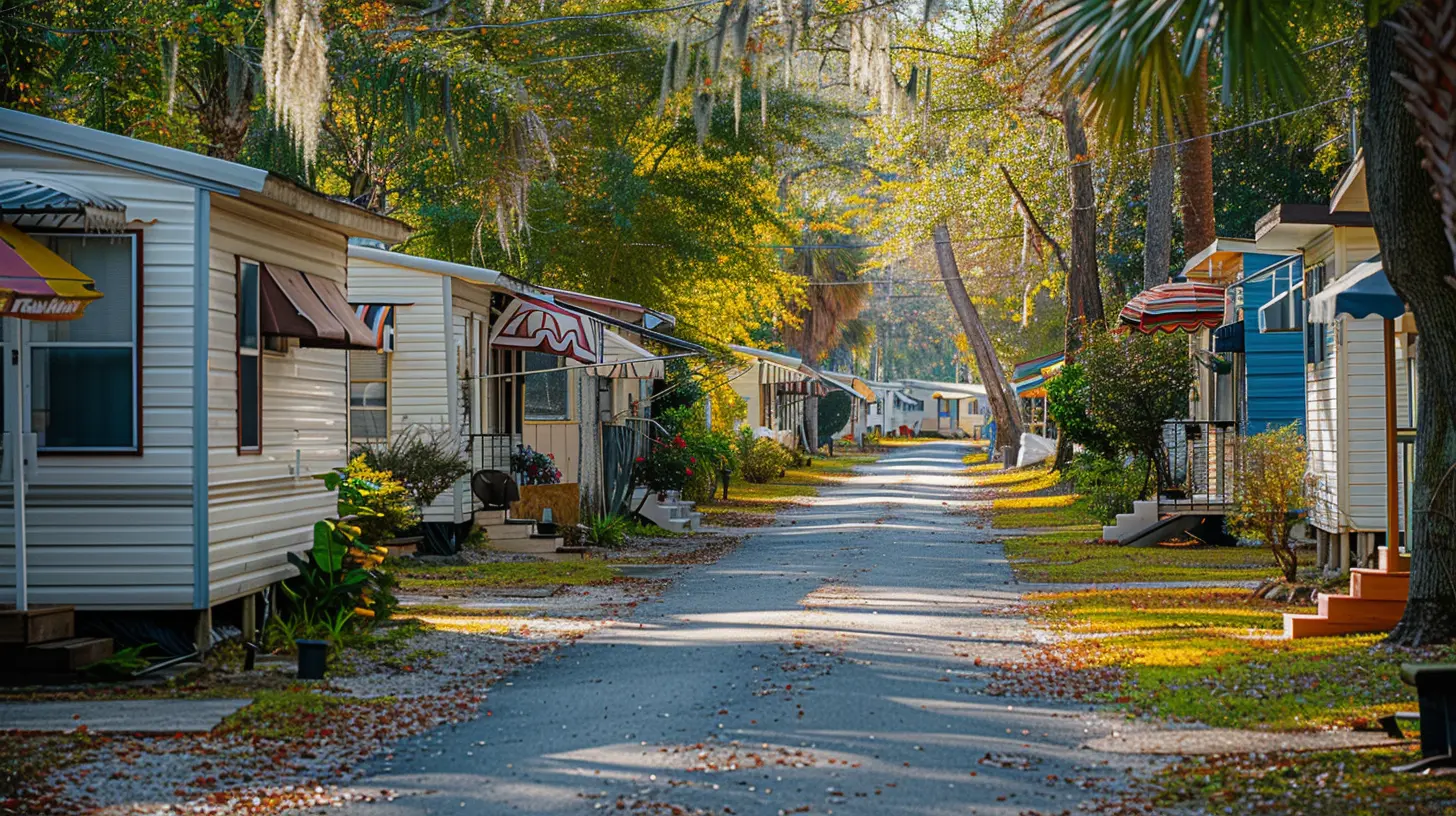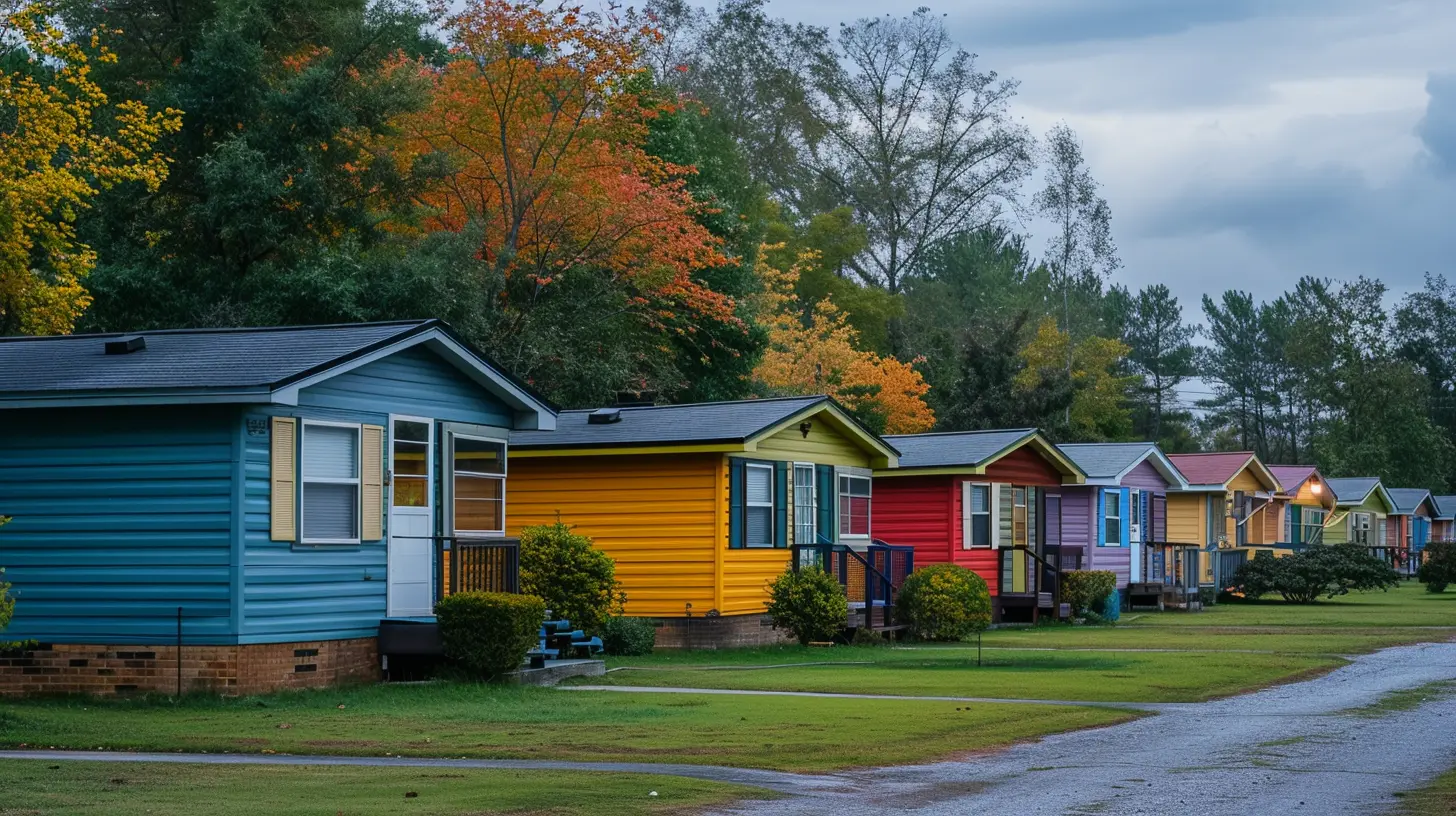31 December 2024
Investing can feel a bit like trying to pick the perfect ice cream flavor: so many options, and each comes with its own unique appeal. Stocks, real estate, mutual funds—you name it. But have you ever considered mobile home parks? These often-overlooked investments have been gaining traction in recent years.
Sure, they might not sound as glamorous as luxury apartments or office buildings, but trust me, there’s more than meets the eye here. Whether you’re new to investing or a seasoned pro exploring something outside the box, let’s dive deep into the pros and cons of investing in mobile home parks. 
What Are Mobile Home Parks, Anyway?
Before we jump into the good, the bad, and everything in between, let’s take a moment to define what we’re talking about. Mobile home parks are communities where people live in manufactured homes (think affordable, modular housing) placed on rented land. The park owner doesn’t usually own the homes themselves—just the land, infrastructure, and sometimes shared amenities like playgrounds or laundry facilities.This setup creates a unique business investment opportunity. Essentially, you’re not in the housing game—you’re in the land-rent business. Intrigued yet? Let’s dig deeper. 
The Pros of Investing in Mobile Home Parks
1. Steady Cash Flow
One of the most appealing reasons investors look at mobile home parks is the reliable income stream. Tenants pay lot rent monthly, and since they own their homes, they’re less likely to leave. Think about it—moving a manufactured home isn’t as easy as packing up a U-Haul. It’s a huge hassle and can be expensive.This "stickiness" of tenants often leads to lower turnover rates compared to traditional rentals, which means a solid and steady cash flow for investors.
2. High Demand for Affordable Housing
Have you seen the cost of housing these days? It’s no secret that affordable housing is in short supply, and mobile home parks help fill that gap. For many families, owning a manufactured home and paying lot rent is much more manageable than buying a traditional house.This affordability factor creates high demand, and trust me—when demand is high, you’re already halfway to a winning investment. Plus, unlike other housing markets that might be oversaturated, mobile home parks remain an under-the-radar option.
3. Lower Operating Costs
As a park owner, you’re not responsible for maintaining individual mobile homes. That means no late-night calls about leaky sinks or busted air conditioners. You’re just maintaining the land and utilities—electricity, water, sewage, maybe some landscaping.This setup keeps operating expenses relatively low compared to managing apartments or single-family homes. Less maintenance headache? Count me in.
4. Zoning Restrictions Create Barriers to Entry
Here’s a fun twist: zoning laws are actually on your side. Many cities make it difficult to create new mobile home parks, either due to regulations or concerns about property values. While this might sound like a negative, it’s actually a hidden advantage.Why? Limited supply. Fewer parks mean less competition, so if you own one, you’re automatically in a more exclusive club. It’s like being the only coffee shop in a neighborhood—everyone’s coming to you.
5. Recession-Resilient Investment
Let’s get real: the economy can be a rollercoaster, and not all investments hold up under pressure. Mobile home parks, however, tend to be more recession-resistant.When times get tough, people downsize, and affordable housing options like mobile homes become even more attractive. If you’re looking for an investment that weathers economic storms well, this might be your ticket. 
The Cons of Investing in Mobile Home Parks
Okay, so mobile home parks sound pretty great so far, right? Well, like any investment, they’re not without challenges. Let’s take a closer look at the potential downsides (because, hey, no one likes surprises).1. Negative Stigma
Let’s address the elephant in the room—it’s no secret that mobile home parks often come with a certain stereotype. Some people equate "trailer parks" with low-income tenants or even neglectful owners.This perception can make it more challenging to attract certain types of tenants or investors. However, with effective management and by creating a safe, clean, and welcoming community, you can combat this issue.
2. Management Can Be Tricky
While you’re not dealing with leaky faucets, owning a mobile home park still requires effort. Managing tenant relationships, ensuring the park’s infrastructure is in good shape, and keeping up with local regulations can be time-consuming.And if you’re not living near the park, that might mean hiring a property manager—which, of course, eats into your profits.
3. High Initial Investment
Mobile home parks aren’t exactly cheap to buy. Depending on the location and size, your upfront cost can range from hundreds of thousands to even millions of dollars. Let’s face it—that’s no small sum.Plus, financing can be trickier in this space because banks might view mobile home parks as riskier than traditional real estate. You’ll need a solid business plan and possibly a larger down payment.
4. Aging Infrastructure
Many mobile home parks were built decades ago, and that aging infrastructure can be a pain. Outdated electrical systems, plumbing issues, or even pothole-ridden roads can be costly to repair or upgrade.If you’re considering investing, make sure you thoroughly inspect the park and factor in the cost of repairs before signing on the dotted line.
5. Tenant Defaults
Although tenants owning their homes is a pro in many ways, there’s a flip side: you’re stuck in an awkward position if someone stops paying their rent. Eviction laws can vary by state, and the process isn’t always quick or straightforward.Dealing with tenant defaults takes time, effort, and sometimes even legal expenses. While it’s not a dealbreaker, it’s something to be prepared for. 
Tips for Investing in Mobile Home Parks
If you’re leaning toward giving this investment option a shot, here are a few quick tips:1. Do Your Research: Location is everything. Look for areas with strong demand for affordable housing.
2. Inspect Thoroughly: Check the condition of the park’s infrastructure before you buy.
3. Crunch the Numbers: Make sure the property generates enough income to cover your expenses—and then some.
4. Consider Hiring Help: If you’re not ready to dive into hands-on management, bring in an experienced property manager.
Final Thoughts
Investing in mobile home parks isn’t for everyone, but for the right person, it can be a unique and lucrative opportunity. It’s like finding a hidden gem in a sea of flashy options—not as shiny, but often more valuable.With reliable cash flow, strong demand, and relatively low maintenance, mobile home parks could be an excellent addition to your investment portfolio. That said, they come with their share of challenges, so it’s important to weigh the pros and cons carefully before diving in.
If you’re up for the adventure and willing to put in the work, who knows? Mobile home parks might just be your next big win.











Starla McIntosh
Investing in mobile home parks offers unique returns but requires careful market analysis.
February 5, 2025 at 7:20 PM